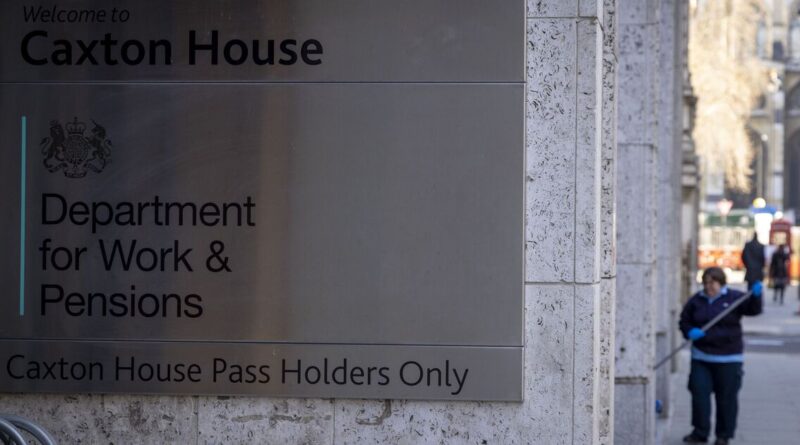DWP benefits if you’re looking for work as unemployment hits high | Personal Finance | Finance
A large number of benefits and financial support are available for those who are currently unemployed and looking for work. From jobseeker’s allowances to housing support and training programs, the government offers various resources aimed at easing financial pressure and helping individuals get back into the workforce.
It comes as unemployment rates have reached their highest point in more than four years. According to the data from the Office for National Statistics (ONS), the unemployment rate increased 4.8 percent in the three months leading up to August. This is a noticeable increase from 4.7 percent in the previous three months.
ONS director of economic statistics Liz McKeown said: “After a long period of weak hiring activity, there are signs that the falls we have seen in both payroll numbers and vacancies are now levelling off.
“We see different patterns across the age ranges with record numbers of over-65s in work, while the increase in unemployment was driven mostly by younger people.”
If you are currently unemployed and searching for work, you may be eligible for various benefits offered by the Department for Work and Pensions (DWP) to help cover essential costs like energy bills.
These financial supports are designed to ease the burden while you get back on your feet.
Additionally, if you live with a long-term health condition or disability, there are specific government schemes available that provide extra assistance tailored to your needs, helping ensure you have access to the resources necessary for daily living.
Universal Credit:
Universal Credit is a monthly payment that helps people with their living costs. It’s mainly for those on a low income but also supports people who are out of work. To apply, you usually need to be 18 or older, under the State Pension age, and have savings and investments of £16,000 or less. The following rates can be provided per households depending on your situation:
Single and under 25: £316.98
Single and 25 or over: £400.14
Living with a partner and you’re both under 25: £497.55
Living with your partner and one of you are 25 or over: £628.10
Jobseeker’s Allowance
Although Universal Credit is replacing income-based Jobseeker’s Allowance (JSA), some people can still apply for New Style JSA. To qualify, you must have worked and paid Class 1 National Insurance in the last two to three years. You also need to be aged 18 or over, under State Pension age, not in full-time education, and living in the UK. There are two rates for JSA which depend on your age:
24 and under: £72.90 a week
25 or over: Up to 92.05 a week
Remember that the DWP expects you to take ‘reasonable’ steps towards finding employment as agreed with a work coach.
Child Benefit:
If you are a parent without a job, you may be able to get Child Benefit to help with raising your children. It pays £26.05 a week for your first child and £17.25 for each additional child. You can claim it if you are responsible for a child, but if you or your partner earn over £60,000, you’ll need to repay part of it. For every £200 earned above that amount, 1 percent of the benefit must be paid back. If your income goes over £80,000, you’ll have to repay the full amount.
Access to Work:
If you have a physical or mental health condition or disability, you may be able to get help through a government scheme designed to support you in finding and keeping a job. This can include grants for work-related support, mental health assistance, and help with communication during job interviews. The scheme also offers support if you work from home, either part-time or full-time. It covers many conditions like ADHD, dyslexia, anxiety, depression, diabetes, autism, and others.





